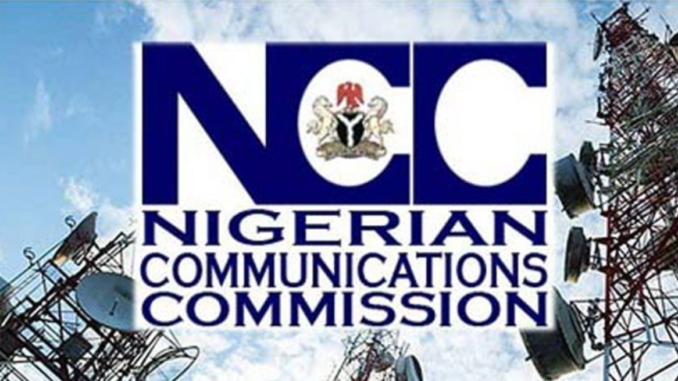
OPACITY, illegalities and a weak regulatory milieu have combined to define telecoms operations in Nigeria. Apart from enduring substandard services, subscribers have also been groaning under the weight of excessive and unapproved charges, which the regulator, the Nigerian Communications Commission, has just estimated at billions of naira. This is a colossal loss to customers. Having identified the illegality, it behoves the NCC to develop and implement holistic measures against such unabashed impunity.
Without being specific, the NCC says that through investigations, mobile telecoms operators have illegally charged subscribers of about N36 billion in the five months to December 2018. This is outrageous, considering the fact that consumers concurrently experience mediocre services. The illegitimate charges have to do mostly with value-added services that customers did not subscribe to, the NCC says. In the recent past, the major operators have had to pay fines for infractions.
Perhaps, because the regulatory body is sluggish in enforcing its own writ, the operators take the liberty to fleece consumers, whose number stood at 169.1 million lines as of November, according to the NCC. Following this, 18,711 subscribers – via emails, the social media and its toll-free 622 number – filed complaints about the operators to the NCC in the third quarter of 2017. In Q4 2017, 17,247 complaints reached the NCC; in the last available statistics – Q1 2018 – 13,880 customers officially notified the NCC about operators’ irregularities. At 6,120, MTN received the highest number of complaints against it during this period; Airtel received 3,143 complaints, Glo 2,885 and 9mobile 1,705.
Most complaints centre on illegal deductions from the call credit of subscribers. Although consumers did not officially subscribe to VASs, they could be docked credit, especially when they have just recharged their lines. Through promos and lotteries and VASs they did not enrol for, customers are charged as the operators deem fit. This is fraud and should be rightly treated as such. After a lot of outcry, the NCC banned them from such lotteries in 2012.
In the same vein, subscribers have been witnessing unsolicited adverts, calls and text messages or SMS. This aberration became intrusive and disturbed subscribers from enjoying their peace. When the protests persisted, the NCC introduced the “Do Not Disturb” code, which could be activated by sending an SMS to 2442 on all the networks in 2016. As of November, 12 million users had activated the code. However, many subscribers are still battling with the invasion of their privacy with unwanted calls.
Although Nigeria’s teledensity stood at 120.7 per cent in November, that figure is deceptive. It does not capture inefficiency in service delivery. The most noticeable downside include dropped/failed calls, network congestion, failed attempts to load recharge cards, inability to change tariff plans, inability to activate the services on offer, late delivery/inability to send or receive SMS and misdirected calls. To escape this tyranny, almost every Nigerian owns an average of two mobile lines. This is in addition to using separate phone lines for data subscription.
To tackle these deficiencies, the NCC introduced porting, in which a consumer originally registered with a company can switch to another network while retaining the former’s numbering system. The real impact of porting has yet to be felt. Similarly, the regulator, in 2017, introduced data roll-over. This mandate allows data to be used uninterruptedly or without time-limit.
However, because of lack of rigorous enforcement of the rules, operators have persisted in wrongdoing, damaging extensively the trust between the subscribers and the service providers. For instance, the use of unregistered SIM cards is still pervasive, in spite of the fact that a major operator was cited for this infraction and fined $5.2 billion over it in 2015. The fine was later reduced following negotiations. In a country where kidnappers and Islamist terrorists use mobile telephony to aid their nefarious operations, a firm regulator would have stepped in decisively to eradicate this breach.
In their defence, telecoms operators complain about Nigeria’s poor infrastructure, especially the absence of electricity to power their operations, and security. Their base stations run on generators. One of the leading four operators reportedly spent an average of N30 billion per annum to buy diesel for the generators in its base stations. In contrast to Nigeria’s meagre 5,000 megawatts, South Africa generates about 47,000MW.
State governments charge operators excessively in tax: the right of way (to lay cables), which costs N145 per metre at the federal level, goes for between N4,000 and N8,000 with state governments. This is a hindrance to broadband penetration: while Nigeria is struggling with 4G broadband penetration, Rwanda has already attained 5G. Telecoms infrastructure is equally vandalised at will. However, it is a weak argument to ask consumers to suffer for all this.
In other places, the authorities apply the laws without sentiments. In 2012, Spain’s regulator, the National Competition Commission, sanctioned the three leading telecoms operators for abusing their dominant position and charging excessively high prices for texts and multimedia messages. For creating the environment for higher retail prices for SMS and barriers for companies wishing to enter or expand in the market, Telefonica was fined €46.5 million, Vodafone €43.5 million and Orange €30 million.
This shows that operators are likely to circumvent the rules when the regulation is lax. Therefore, the NCC should enforce sanctions when operators undermine the system. This creates an atmosphere of trust for fresh investment. As it has promised, the NCC should compel the operators to refund all the illegal deductions to their customers. The government should make the environment business-friendly with the provision of social infrastructure, security and harmonisation of all taxes.
END

Be the first to comment